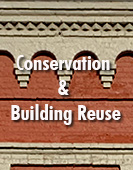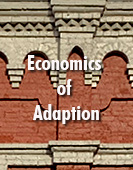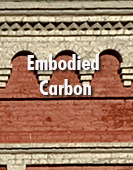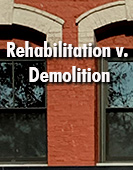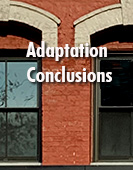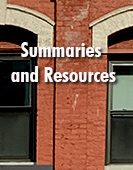- Heritage 101
- Advocacy
- Accessibility for Historic Places
- Climate & Sustainability
- Cultural Maps
- Heritage Place Conservation
- Heritage Policy & Legislation
- Homeowners
- Intangible Cultural Heritage
- Reconciliation
- Indigenous Cultural Heritage
- Setting the Bar: A Reconciliation Guide for Heritage
- 1. Heritage and Reconciliation Pledge
- 2. Acknowledging Land and People
- 3. Celebrating Days of Recognition and Commemoration
- 4. With a Commitment to Learn
- 5. Committing to Strategic Organizational Diversity
- 6. Mission-Making Room for Reconciliation
- 7. Possession, Interpretation, Repatriation and Cultural Care
- 8. Shared Decision Making
- 9. Statements of Significance and other heritage planning documents
- 10. Heritage Conservation Tools, Local Government Act
- Racism: Do Not Let the Forgetting Prevail
- Taking Action: resources for diversity and inclusion
Climate Adaptation: Building Reuse is Climate Action: Summaries and Resources
Making a case to leverage existing and historic buildings for zero net carbon
6. Building Reuse is Climate Action: Summaries and Resources
Summary List of Benefits of Focusing on Existing & Historic Buildings:
- Increase overall sustainability and resilience;
- Improve community place-making and continuity;
- Increase achievement of social and cultural objectives such as inclusivity and commemoration;
- Reduce urban intensification impacts and costs;
- Heritage generates jobs and income and avoids waste from demolition;
- Retrofitting existing buildings offers the most substantial emissions reductions over time.
Summary List of Recommendations:
- Dramatic acceleration of context-sensitive rehabilitation of the massive stock of existing, abandoned and heritage properties;
- Bring forward policies and programs to further enhance the feasibility and attractiveness of deep green rehabilitation to existing and historic buildings;
- Energy Code for Existing Buildings to be adopted into the BC Building code: launch before 2024 if possible;
- Policy tools that help remove obstacles for building reuse and remove barriers to retrofit and retrofit policies;
- Consider a range of tax benefits for existing and historic building renewal that decreases carbon emissions;
- Policy levers that enhance sustainable finance for decarbonizing rehab/retrofit for existing & historic buildings;
- Engage conservation professionals with experience in new interventions into existing buildings to assist with policy and program development;
- Collaborate with Heritage BC to review policy and program proposals, to ensure conservation community input is considered and existing & historic buildings are optimally decarbonized while protecting and leveraging their values.
Other resources and authors
- Architects Climate Action Network. The Carbon Footprint of Construction: a case for regulating embodied carbon in construction to significantly address the impact of the industry on the climate. 2021
- Hallé, Renée. Renewing UBC’S Campus. Carleton University, November 14, 2019. PowerPoint Presentation.
- Heritage BC. “Making a Case for Building Conservation.” Heritage BC Learning Centre. Making a Case for Heritage: Building Conservation – Heritage BC
- London Energy Transformation Initiative. LETI Embodied Carbon Primer: Supplementary Guidance to the Climate Emergency Design Guide. World Green Building Council, 2020.
- Sanders, Helen. “Carbon Counting: Why ‘Embodied’ Carbon Matters.” US Glass Mag, August 2, 2019. https://www.usglassmag.com/insights/2019/08/carbon-counting-why-embodied-carbon-matters-part-1/
- Thompson Brandt, Mark, and Cory Rouillard. “Climate Chaos and Heritage- Conservation Values: The Urgency for Action.” Traditional Building, October 2020. https://lsc-pagepro.mydigitalpublication.com/article/Climate+Chaos+and+Heritage-+Conservation+Values%3A+The+Urgency+for+Action/3762040/673255/article.html


